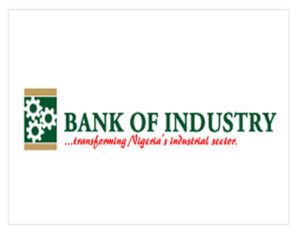PSB to intensify competition in Banking sector –– GTBank report
By Kayode Tokede
A group of analysts at Guaranty Trust Bank Plc (GTBank) have disclosed in a report that the release of operating guidelines and licensing of Payment Service Banks (PSB) in 2020 is expected to intensify competition in the banking sector as it gives Telecommunication companies entry into the industry.
The bank in its “Macro-economy and Banking sector Themes for 2021” report on Monday stated that competitive landscape in 2021 would be shaped by the Central Bank of Nigeria’s (CBN) level of adherence to the new act, the resilience of non-bank competitors and the reaction of traditional banks to the changing landscape.
The report stated that “the new Banking and Other Financial Institutions Act (BOFIA) 2020 could change the competitive environment of the industry going into 2021.
“Notably, the act broadens CBN’s regulatory oversight function to include fintechs as it prohibits the operations of unlicensed financial institutions.
“This will very likely result in capped fees for Fintechs and increased operational and regulatory costs. We project that this might increase their cost and stifle their drive in the long to medium term and facilitate a levelling of the playing field for traditional banks and their non-bank competitors.
“The new act further stipulates that loans in excess of N3 million without collateral will now require regulatory approval.
“This will change the dynamics for most SMEs that depend on revenue-based financing, and retail customers that require salary-based consumer loans offered by banks as an additional hurdle has been added to the loan procurement process.
“Whilst the act seeks to strengthen the financial services sectors and enhance healthy competition amongst players, there are concerns that the powers given to the CBN in the new act could make financial services providers move slowly and adapt with lesser agility.”
The report stated that prior to the currency devaluations in 2020, some banks barely managed to stay above the regulatory minimum Capital Adequacy Ratio (CAR) of 15per cent.
On CAR, the report said, “With the devaluation of the naira, we suspect that the true capital positions of these banks will be further challenged, erasing existing capital buffers.
“Consequently, we expect banks with shortfalls in their capital positions to retain more of its earnings to shore up their capital and keep themselves within touching distance of the minimum regulatory capital requirement.
“It is also not unlikely that the apex bank will offer some form of regulatory forbearance to banks that fall short of the minimum regulatory capital.”
On liquidity, the report said, “A robust system liquidity dominated the money market in 2020 fostered by a number of factors including the bifurcation of the Nigeria Treasury Bills (NTB) and the OMO securities in Q3 of 2019 and the redemption of about N9 trillion of the N13 trillion in maturing OMO securities within the year.
“Following the decision of the CBN to re-issue only about N5.1 trillion in OMO securities during the year, and a lack of alternative investment outlets for the maturing proceeds, liquidity spiked rapidly resulting in a crash in interest rates across board.
“In a bid to manage the resultant liquidity spike, the CBN resorted to various monetary intervention activities including the introduction of arbitrary special CRR debits aimed at withdrawing liquidity from the system.
In contrast, system liquidity in 2021 is expected to be tighter. For one, only N4.3 trillion in OMO securities will be maturing this year, with over 50per cent of that maturing within the first quarter of the year which implies about N2.5 trillion of liquidity injection into the system in Q1, with attendant CRR implications assuming that the CBN maintains its trend of reissuing a portion of the maturing securities.
“This could result in the outflow of more funds from the market in form of CRR. From Q2 2021 however, we expect a shift in the liquidity situation of the market, based on the significantly reduced OMO maturities of N1.7 trillion.
In the absence of other liquidity injection sources, market liquidity is expected to tighten significantly with a resultant decline in special CRR debits.
“As a result of the tightening of liquidity conditions expected in the market from Q2 2021, we anticipate a rise in volatilities within the money market and fixed income space.
“We also anticipate a renewed scramble for deposits by banks and other financial institutions to meet demands on them for funds.
“Money market rates, should on average, rise steadily across the period with a resultant pull on deposit and lending rates. In view of the above, the CBN might have to consider the possibility of releasing some of the CRR sterilized by it.”
The report added that, “We expect the CBN to sustain its policy stance going into 2021 driven largely by the need to improve credit flow to spur economic growth. In a move to attract portfolio flows and reduce consistent exit of investors, the CBN increased yields of fixed Income securities.
“The additional borrowings by the government as well as relatively lower OMO maturities into the system may result in a further increase in interest rates but not expected to be significantly higher than present levels.
“We note the impact of the second wave of the pandemic but also do not foresee widespread lockdowns as was with the first wave as effective vaccines are being rolled out and medical practitioners have a better understanding of the virus.”




